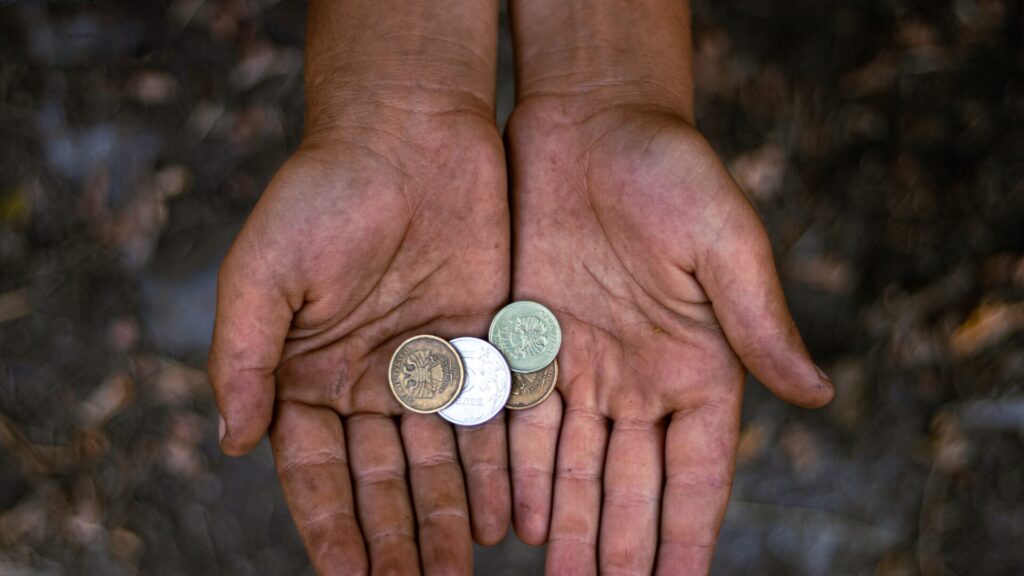
In Southern Oregon, healthcare is often described as available.
Clinics exist. Hospitals operate. Insurance coverage—particularly through Medicaid—has expanded dramatically over the past decade. On paper, access appears to be improving.
And yet, for many people living in poverty, healthcare remains functionally out of reach.
Not because services don’t exist—but because an invisible wall stands between people and the care they technically qualify for. This wall is not built from policy language or insurance exclusions alone. It is constructed from time constraints, financial tradeoffs, cognitive load, shame, and systems designed around assumptions that do not match lived reality.
Understanding this wall requires moving beyond surface-level discussions of coverage and into the mechanics of how healthcare is actually accessed day to day.
“Free” Care Still Has a Price
Healthcare systems often describe services as free or low-cost at the point of care. But for individuals living paycheck to paycheck, the true cost of accessing care extends far beyond a copay.
A single appointment can require:
- Transportation costs, particularly in rural areas where clinics may be 20–60 miles away
- Lost wages from hourly or shift-based employment
- Childcare arrangements during appointments or long wait times
- Meals purchased while away from home
- Parking fees or fuel expenses
These costs compound quickly. For families already balancing rent, utilities, food, and debt, healthcare becomes a tradeoff rather than a given.
In Southern Oregon’s rural communities, these burdens are amplified. Limited public transportation, long travel distances, and seasonal employment patterns make attending appointments an exercise in logistics—not compliance.
Systems Designed for Someone Else’s Life
Healthcare scheduling systems quietly reflect middle-class assumptions.
They presume:
- reliable internet access
- unlimited phone minutes or data
- flexible work schedules
- the ability to wait on hold
- consistent literacy and language fluency
For many low-income individuals, these assumptions do not hold.
Missed calls during work hours can mean lost appointments. Online portals may be inaccessible due to limited data plans or outdated devices. Rigid clinic hours force impossible choices between employment and care.
When patients fail to navigate these systems successfully, the failure is often labeled as personal rather than structural.
The Cognitive Tax of Poverty
Poverty is not merely a lack of money. It is a constant state of problem-solving under pressure.
Housing instability, food insecurity, caregiving responsibilities, transportation uncertainty, and financial stress consume cognitive bandwidth. This leaves less capacity for navigating complex healthcare systems.
In clinical settings, this reality is often misunderstood.
Missed appointments are marked as noncompliance. Incomplete treatment plans are interpreted as lack of motivation. The structural constraints shaping these outcomes remain invisible within standard medical documentation.
Over time, patients are forced to repeatedly explain themselves—to new providers, new staff, new systems. The emotional toll of this repetition compounds feelings of shame and exhaustion.
When Care Feels Conditional
Interactions with healthcare providers matter deeply.
For individuals living in poverty, asking for help can feel exposing—especially when prior encounters have involved judgment, disbelief, or subtle dismissal.
Implicit bias plays a role. Patients may be perceived as difficult, unreliable, or disengaged when they are in fact overwhelmed. Time-constrained clinicians, operating within productivity pressures, may lack the space to fully understand socioeconomic context.
These dynamics erode trust.
When trust weakens, people delay care. Preventive visits are postponed. Chronic conditions worsen quietly. By the time care is sought, interventions are more complex, more expensive, and less effective.
Support Exists—But Often Out of Reach
Many healthcare organizations offer assistance programs: transportation vouchers, medication subsidies, care coordination, or community health workers.
Yet these resources are frequently underutilized.
Why?
- Information is buried in technical language
- Eligibility rules are unclear
- Application processes are time-consuming
- Shame discourages disclosure of need
Without proactive outreach, these supports remain theoretical. Systems that rely on patients to self-identify need often miss those most affected.
Access Without Equity Is an Illusion
Healthcare systems frequently measure access through utilization metrics: visits completed, prescriptions filled, procedures performed.
But access without equity masks exclusion.
If receiving care requires flexible time, financial slack, confidence navigating bureaucracy, and emotional resilience, then the system selects for those who already have advantages.
True access requires reducing friction—not merely expanding eligibility.
What Needs to Change (In Practice, Not Rhetoric)
Addressing poverty-related barriers to care does not require sweeping federal reform alone. Meaningful progress can occur locally through design choices.
1. Design for Real Lives
Clinic hours, scheduling systems, and communication channels should reflect the realities of hourly work, caregiving, and limited connectivity.
Extended hours, text-based scheduling, and walk-in flexibility are structural interventions—not conveniences.
2. Treat Missed Appointments as Data
No-shows are not moral failures. They are signals.
Tracking patterns—by geography, time, transportation access—can reveal system design flaws and guide targeted solutions.
3. Integrate Navigation as Core Infrastructure
Community health workers and care navigators should not be optional add-ons. They are essential translators between systems and lived experience.
4. Normalize Assistance
Support services should be offered universally rather than conditionally. Removing the requirement to ask reduces stigma and increases uptake.
5. Measure Burden, Not Just Outcomes
Incorporating patient burden—travel time, lost wages, caregiving strain—into planning decisions makes tradeoffs visible to leadership.
Making the Wall Visible
Poverty denies access to healthcare not through a single gatekeeper, but through thousands of small frictions that accumulate into exclusion.
These barriers are rarely malicious. They are the result of systems designed without the most vulnerable in mind.
Reimagining healthcare requires more than expanding coverage. It requires redesigning access itself—so that care fits into real lives rather than demanding that lives contort around care.
Until we address the invisible wall, healthcare will remain technically available—and practically unreachable—for too many of our neighbors.
Making that wall visible is the first step toward dismantling it.
